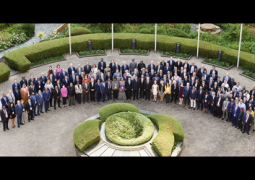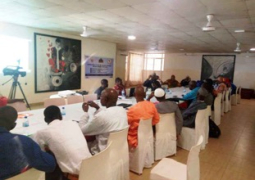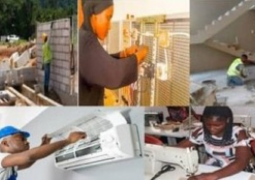
The training, which commenced on Friday 12th September 2025, at Bakadaji Hotel, focuses on refining advocacy messaging and developing strategies to better engage religious leaders in the fight against harmful traditional practices.
Held under the theme “Capacity Building of Anti-FGM Advocates on Messaging and Development of Strategies for the Inclusion of Religious Leaders”, the workshop seeks to equip participants from civil society organisations and faith communities with practical tools for advocacy, harmonised messaging, and strategic engagement.
Speaking at the opening ceremony, Mr Fallu Sowe, National Coordinator of the Network Against Gender-Based Violence, reflected on the long-standing efforts of civil society groups in defending the right decades of advocacy, the prevalence of FGM in The Gambia has only slightly declined from 75% in 2013 to 73% in 2019, according to DHS surveys.
Sowe emphasised that recent attempts to repeal the FGM ban highlight the urgent need for stronger collaboration among civil society organisations, government bodies, and international partners to uphold human rights.
He further pointed out that FGM, child marriage, domestic violence, and sexual abuse remain critical challenges, with increasing reports of rape and wife battering.
“This is why we must recommit ourselves to protecting women, girls, men, and boys from all forms of violence and ensure that laws safeguarding human rights are upheld,” he said.
Representing the UN Joint Programme, Ms Joy Michael of UNFPA welcomed the initiative, stressing that advocacy must be evidence-based and culturally sensitive. She cautioned that poorly framed messages, especially in the age of social media can do more harm than good.
“Effective advocacy is like a sharpened tool; it allows us to achieve change with less effort. This training will help us harmonise our messages and drive systemic change,” she declared.
From the Ministry of Gender, Children and Social Welfare, Ms Neneh Touray highlighted the importance of uniting civil society, government, and religious leaders in addressing GBV and harmful practices. She encouraged participants to craft impactful, audience-sensitive messages and to mentor younger advocates within their communities.
Touray added that while older generations may resist change, empowering youth offers a sustainable path to reducing FGM prevalence, particularly among children under five, where the rate has dropped to 25%.
The workshop forms part of the ongoing project “Inclusive Approach on Ending SGBV with Traditional and Cultural Leaders”, which aims to build alliances with influential figures to accelerate the elimination of FGM and safeguard the rights of women and girls across The Gambia.





